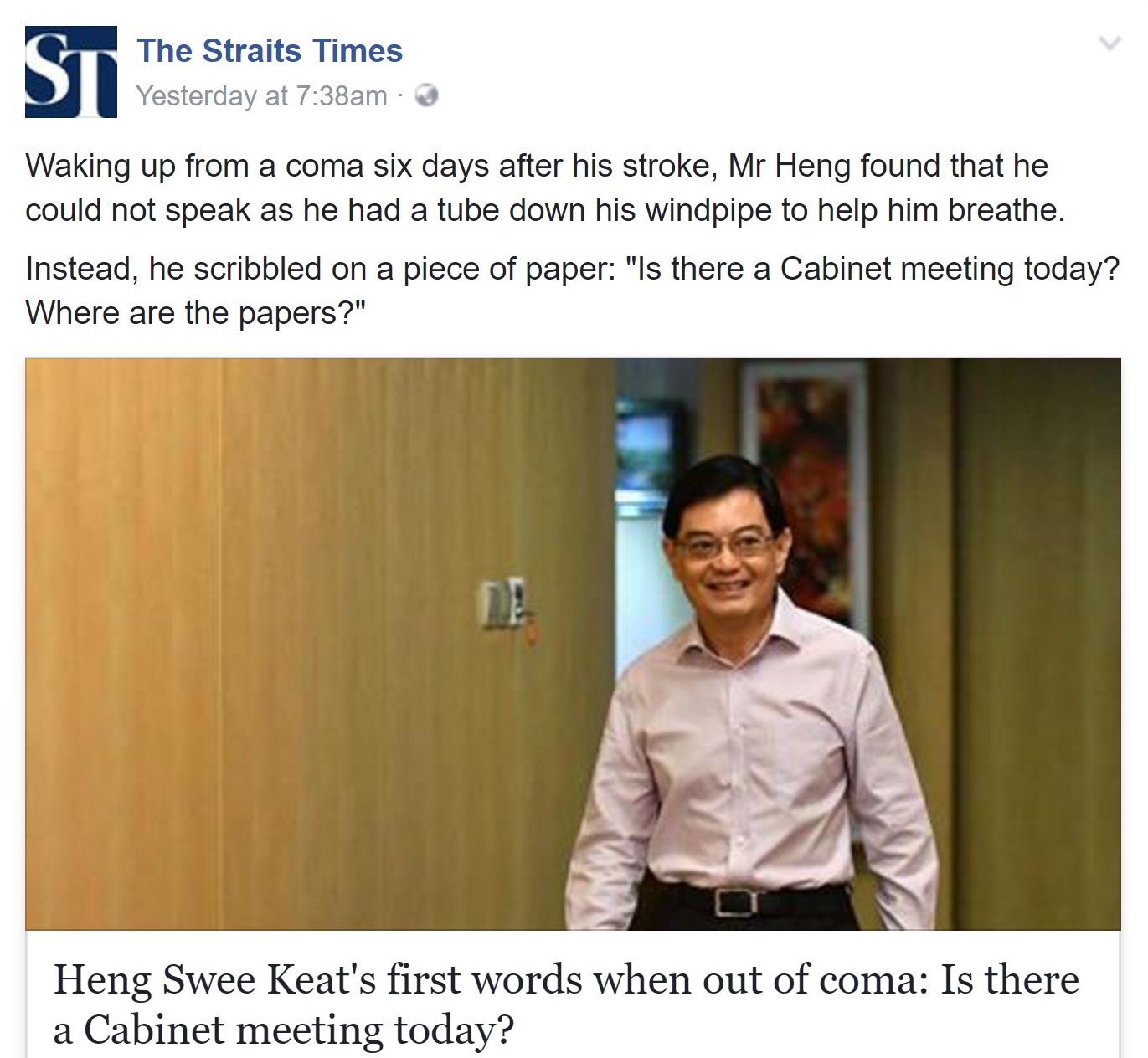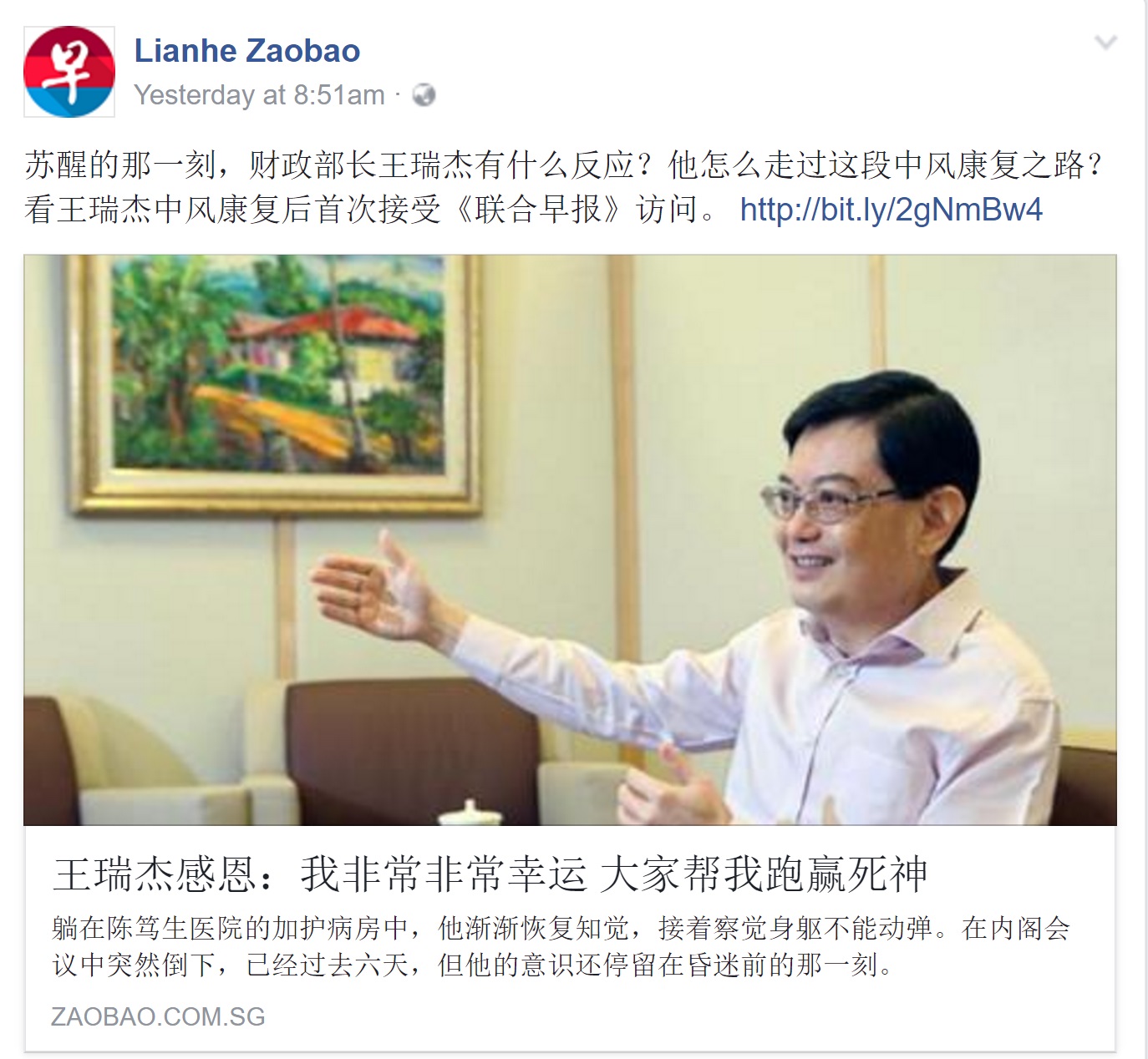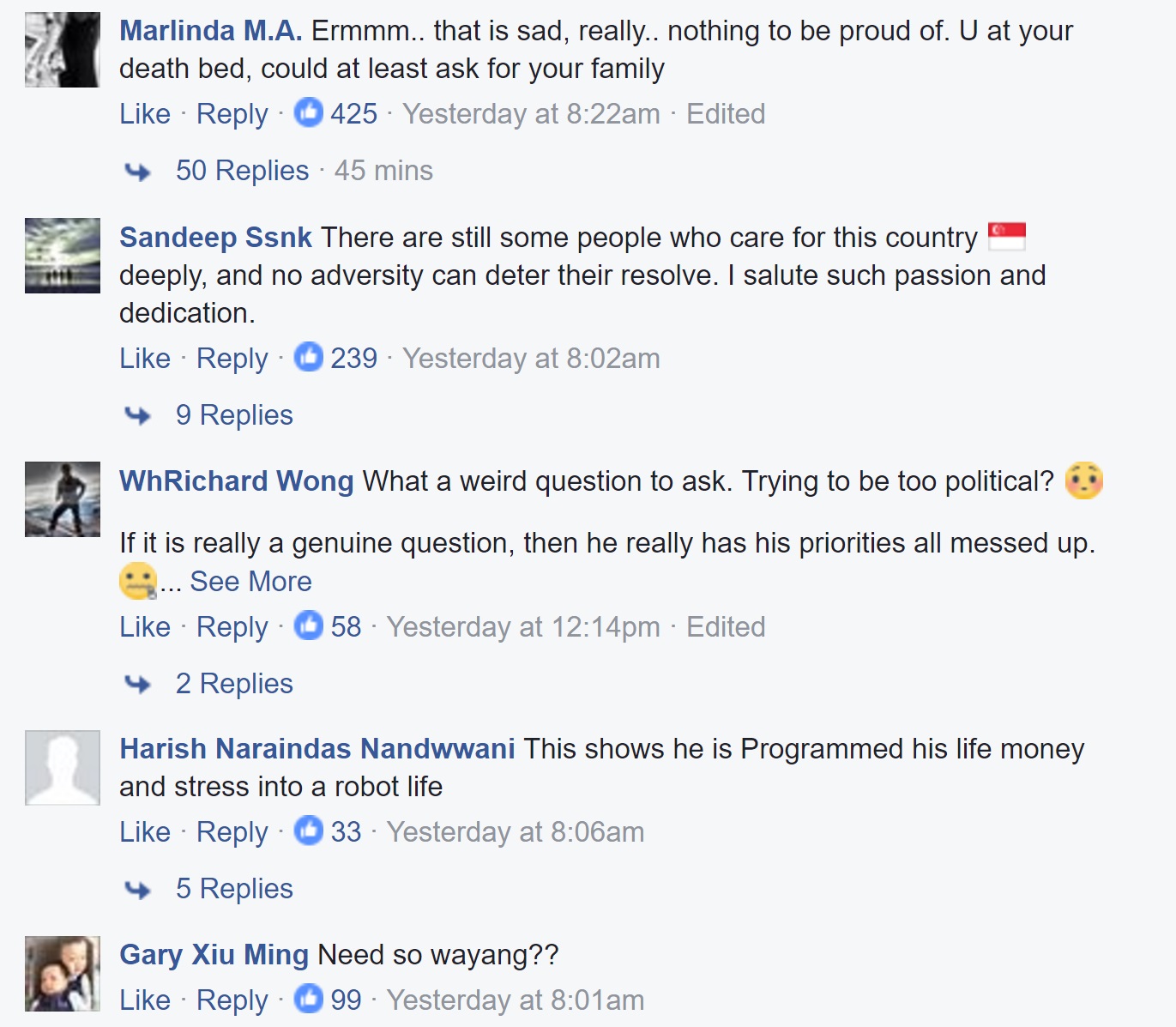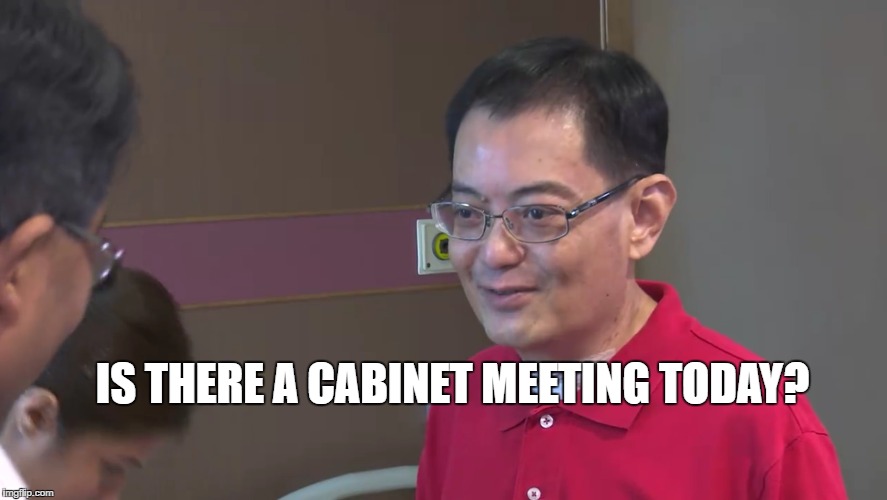On Sunday, Dec. 18, Finance Minister Heng Swee Keat announced his return to politics and public scrutiny with an exclusive interview with The Straits Times and Lianhe Zaobao.
Heng's interview was featured on the front pages of ST and ZB on both Sunday and Monday.
So, here are four observations on Finance Minister Heng Swee Keat's first media interview since feeling better after collapsing from a stroke in May this year.
1. What was the intention of the interview and was it a success?
If the intention was to show that Minister Heng is well and in good form, the newspaper coverage over the two days have succeeded in creating the impression.
Heng returned to work in August but had not made any public appearances yet. As the papers noted, Heng's work meetings are limited to 10 persons and below.
Importantly, the extensive interview suggested that Heng had caught up with important developments that occurred during his absence and he had a firm grasp of the local and global issues facing Singapore.
In the second part of his interview today, he told ST that he understood Singaporeans' anxiety about the economy and highlighted that Singaporeans "will have to organise ourselves differently" and "build new capabilities".
2. A first-person account was finally provided about Heng's stroke.
Various accounts of Heng's stroke have been provided by Prime Minister Lee Hsien Loong and a few Cabinet Ministers -- Ng Eng Hen and Vivian Balakrishnan -- in Facebook posts.
However, the interview is the first time Heng revealed what happened to him on that fateful day.
Heng recalled that he was having a headache before the Cabinet meeting and he took a Panadol tablet.
He thought that it was nothing extraordinary and that his headache could have resulted from a lack of proper rest.
Heng then fainted at 5.34pm during the Cabinet meeting.
Heng expressed his gratitude to Minister of State Janil Puthucheary, who is a doctor, the ambulance crew and the medical team for saving him.
3. The Straits Times and Lianhe Zaobao coverage highlighted different aspects of what Heng said.
ST and ZB focused on the same issues -- Heng's recovery, leadership succession (on the first day of coverage) and Heng's view on the economy (on the second day of coverage).
However, the presentation of the first story about Heng was quite different in form, with ST focusing on the first words Heng said and ZB focusing more broadly on Heng's road to recovery.
 Source: Straits Times FB.
Source: Straits Times FB.
 Source: Lianhe Zaobao FB.
Source: Lianhe Zaobao FB.
ST's Facebook post and headline resulted in some rather nasty comments from the public, who could not understand why Heng was such a workaholic.
 Source: Straits Times FB.
Source: Straits Times FB.
Looking beyond the headline, ZB was more comprehensive in providing a context to Heng's first comments:
ZB: “我在哪里?”“为什么被绑住?”“今天有没有内阁会议?”“我的资料在哪里?”
(Where am I? Why am I tied up? Is there a Cabinet meeting today? Where are my documents?)
ST: Among the first words he scribbled: "Is there a Cabinet meeting today? Where are the papers?"
ZB 1 ST 0.
4. A missed opportunity for Heng to connect more deeply with Singaporeans.
As former British Deputy Prime Minister (DPM) Nick Clegg noted in his new book, Politics: Between the Extremes:
"People follow stories, not policies, in politics. Government and leaders who have a clear story that has a beginning, middle and end will generally be rewarded".
A great politician is able to tell her or his story in the same manner as a zoetrope -- through a series of separate snapshot images, which, when seen together, amount to a clear moving sequence.
For many Singaporeans, Heng's political zoetrope is made up of the following snapshot moments: Heng as a senior civil servant entering politics; Heng's role as the Principal Private Secretary to the late Lee Kuan Yew and his recounting of Lee's Little Red Box; Heng's role as the Education Minister; Heng's first Budget as the Finance Minister; Heng's stroke; and Heng's first appearance that was captured on his Facebook video.
As Clegg observed, "the art of political storytelling is to recognise that fleeting moment when people might actually care to listen to what you have to say".
Heng's first media interview was such a moment.
The moment however focused much on Heng's first words when he woke up, and the fact that it's almost work as usual now for Heng, with some personal discomfort. For instance, Heng sets an alarm in his mobile phone to remind him to take a break every hour and just walk around.
When asked if the near-death experience had changed Heng's life priorities, Heng replied "no" in a way, because he always believed in doing his best in whatever he does.
Such comments by Heng may have surprised regular Singaporeans who hoped that Heng was a mere mortal who did not put Singapore, public service and work ahead of his health.
So the mainstream media have told a story that suggests that Heng was a machine rather than a mensch.
And this may be what Singaporeans remember from this carefully prepared interview with ST and ZB that took five days to publish.
If you like what you read, follow us on Facebook and Twitter to get the latest updates.
If you like what you read, follow us on Facebook, Instagram, Twitter and Telegram to get the latest updates.
